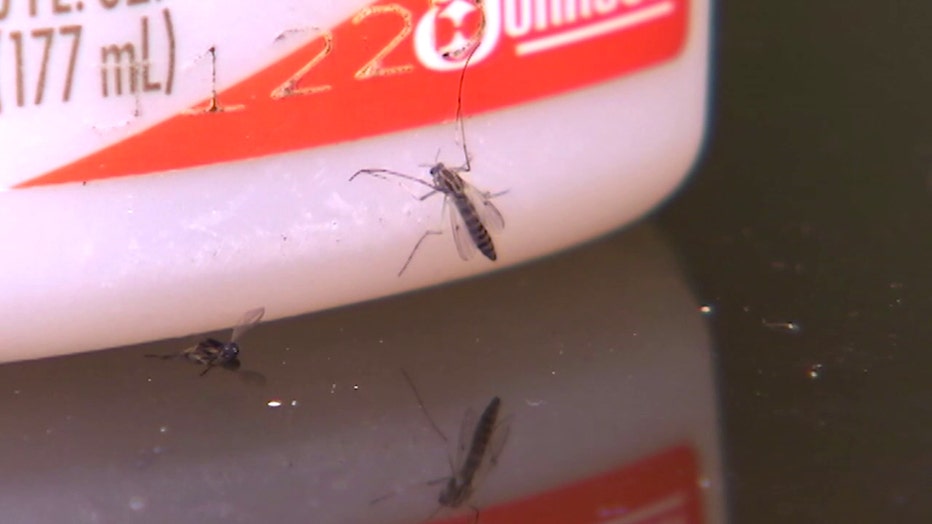Pinellas County officials work to keep mosquitoes under control
ST. PETERSBURG, Fla. - The rainy season also means mosquito season, and with all the rain that the Tampa Bay area got last week definitely makes it easier for mosquitoes to breed. But, officials said they’re pretty good at finding places even when not much water is around.
Alissa Berro, Pinellas County’s Mosquito Control and Vegetation Management director, said all mosquitoes need is a bottlecap of water to breed. Berro said mosquitoes love to live in water around homes, so it’s a good idea to dump any and all standing water once a week.
"Look for areas that really can hold water," she said. "You can think about tarps with a dip in them, children's toys, of course, bird baths, as well as your flower pots. All of those areas are areas that these mosquitoes can breed."
It’s also a good idea to use bug spray with a CDC approved active ingredient like DEET or oil lemon eucalyptus. Wear loose, light-colored long sleeves and pants too. That makes it harder for mosquitoes to bite you, Berro said.
Close to 60 traps are throughout the county and crews check them daily. They use the traps to identify mosquitoes and to determine if they’re an issue. Only 17 out of the 40 mosquito species in Pinellas County are an issue when it comes to public health, Berro said.
Many are actually beneficial pollinators, and some eat other mosquito larva. Berro said they try to get to mosquitoes while they’re in the larva stage before they can bite and spread diseases.

"The Department of Health hasn't identified any locally acquired cases of mosquito-borne illness, but it's important to remember that we do have the mosquitoes here in Pinellas that can spread disease," Brooke Walter, an epidemiologist at the Florida Department of Health in Pinellas County, said. "So, because of that, it's important that people are taking proper preventive measures, covering exposed skin, wearing proper insect repellent, and making sure to dump any standing water that might be around your home that might collect in flowerpots, buckets, trash cans."
The county’s new helicopter will help get to mosquitoes when they’re in the larva stage.
"This is how we're able to reach all of those large breeding areas of mosquitoes. So, this is fantastic as well because our new helicopter also has the ability to carry four times the amount of product that our previous helicopter is able to use, so it makes us far more efficient," Berro said.
They’ll use the new helicopter full-time starting next mosquito season. Mosquito season runs from June-October.
Symptoms of mosquito-borne diseases include fever, joint pain and nausea. Walter said if you feel sick, go to the doctor.
Pinellas County Mosquito Control uses sentinel chickens to help serve as an early warning system for humans when it comes to mosquito-borne viruses. Mosquito Control crews and the DOH test their blood for antibodies to specific viruses. The animals aren’t impacted by the illnesses, Berro said.
If you have an issue at your home, county crews will come out and take a look for free. You can call 727-464-7503.
WATCH FOX 13 NEWS:
SIGN UP: Click here to sign up for the FOX 13 daily newsletter

